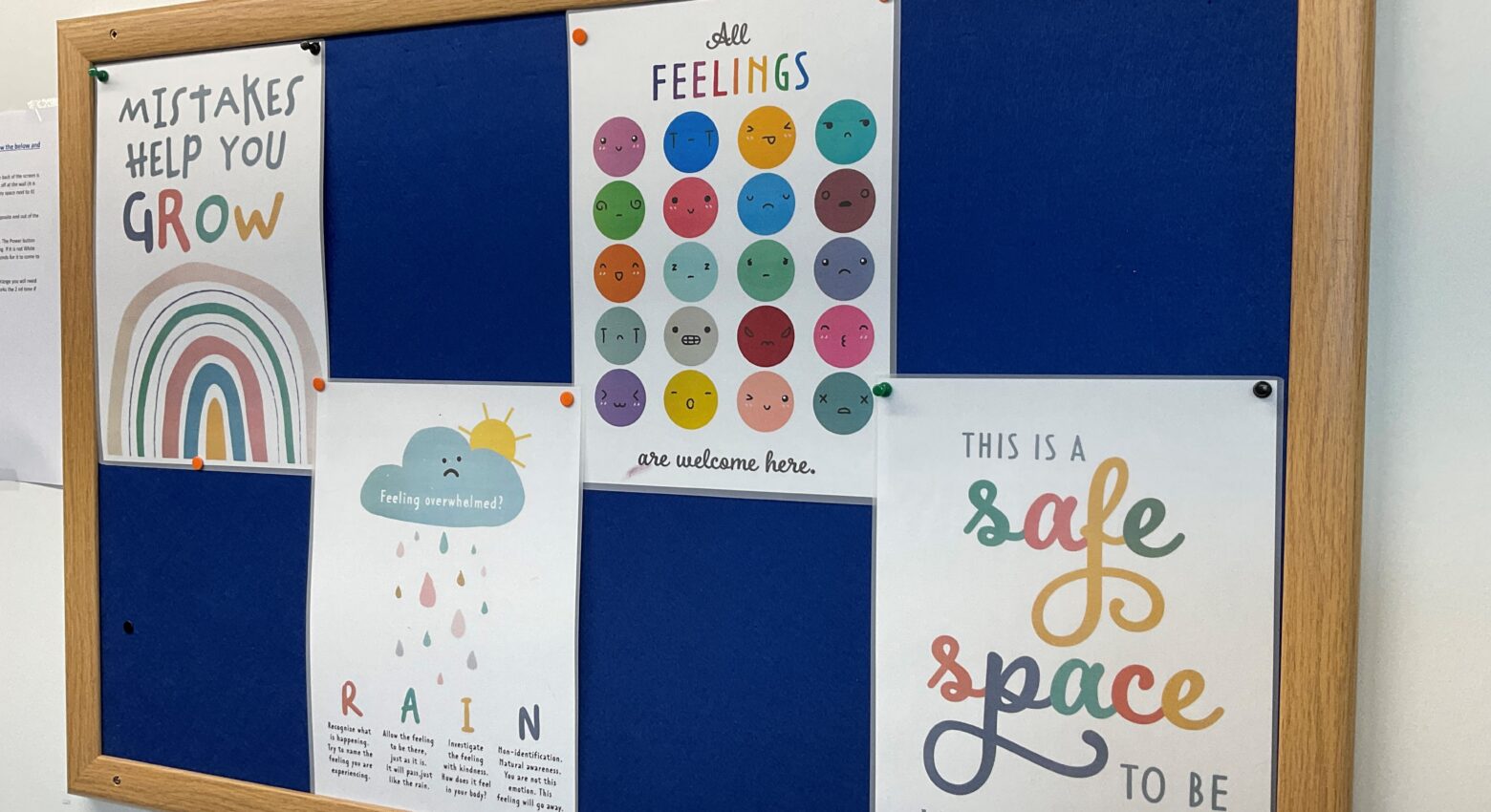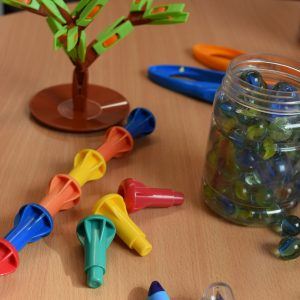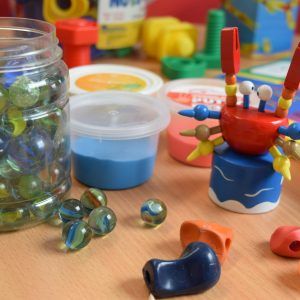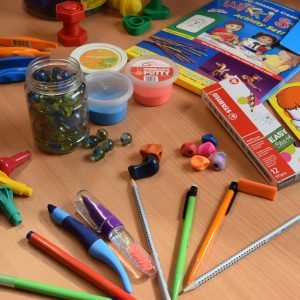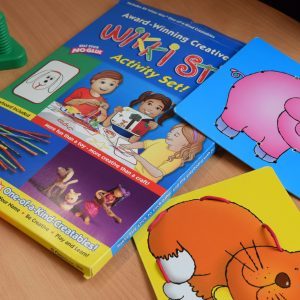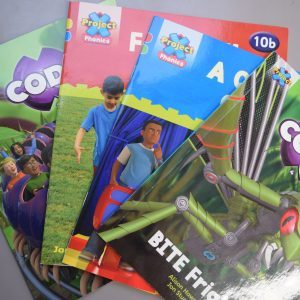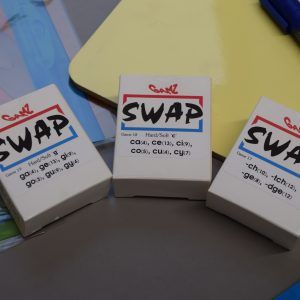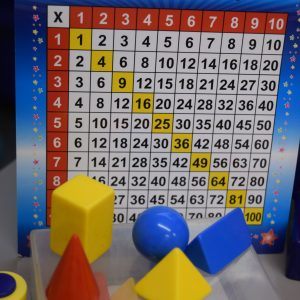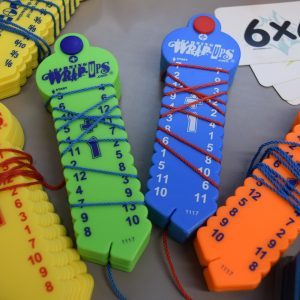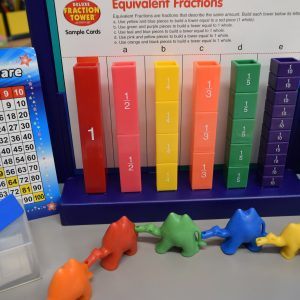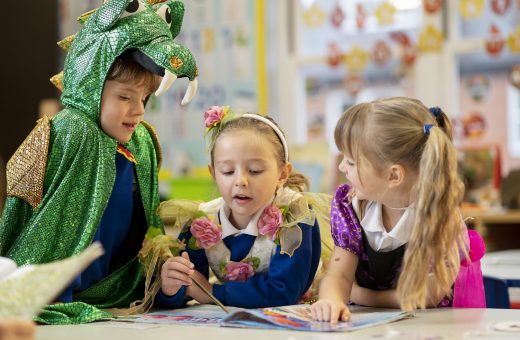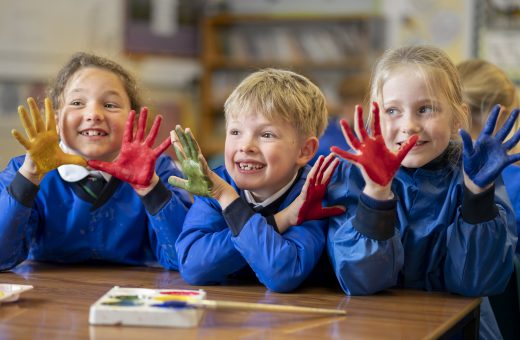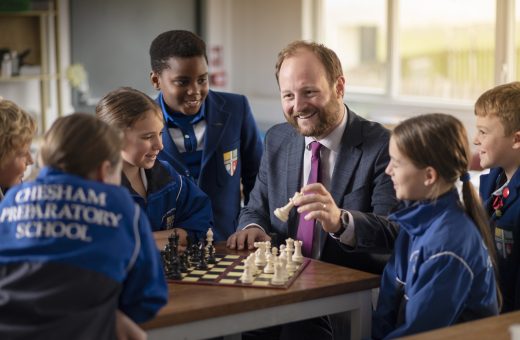A highly committed learning support team together with the diligence of subject teachers and form teachers ensures the inclusion of all pupils during lessons.
We have a strong, experienced, professional and caring team in the Learning Support department who work throughout the school from Pre-Prep to Year 6, wherever there is a need. We work in a variety of ways, including assisting and training staff, in class support, small group interventions and 1:1 sessions. At Chesham Prep, we strongly believe that all teachers are teachers of SEND and the Learning Support department works in close partnership with all members of staff. Important information relating to how pupils learn best and areas they find challenging are discussed regularly in staff meetings and form the basis of our Pupil Passports and Provision Maps. These are written in collaboration with pupils, parents and staff and inform planning, teaching and learning.
Learning Support staff are qualified in a range of specialisms, including dyslexia and specific learning difficulties, supporting autistic pupils and those with ADHD, improving fine and gross motor skills and handwriting, developing social skills and self-esteem, supporting pupils with Modern foreign languages and counselling. A Speech and Language Therapist visits the school weekly and we have regular visits from Occupational Therapists and Educational Psychologists.
In order to help pupils learn best, we involve pupils and parents in all stages of the ‘Assess, Plan, Do, Review’ cycle. At Chesham Prep we work hard to promote success and understand differences, this culminates in our annual participation in Neurodiversity Celebration Week.
Our Aims Are:
- To ensure that every child has an equal opportunity to participate in all aspects of school life, irrespective of race, gender or special need.
- To provide equal access to the curriculum and to cater for the individual needs of each child.
- To promote staff awareness of the need to differentiate effectively in order to cater for children with SEND and to provide staff training regularly and where appropriate.
- To establish and maintain good home/ school communication.
- To monitor and review individual needs regularly, and to maintain clear records of any action taken.
- To review needs and provision each term.
- To meet the requirements of current legislation.
All children are different and some have needs which require a differentiated curriculum. At Chesham Preparatory School we have children who receive a variety of specialist help.
The Learning Support Department has regular Open Days and holds seminars for staff and parents. Please click here to see our Special Needs Policy.
The information and links on this section of the website are for your interest only, if in doubt please seek advice from you GP.
Dyslexia
Organising or learning difficulties involving fine co-ordination and working memory, affecting aspects of language, learning to read or write or learning to manipulate numbers in an otherwise able individual.
Associated difficulties:
- Dysgraphia – poor handwriting
- Dyscalculia – poor maths skills
To contact the British Dyslexia Association for further information or courses for parents, teachers and children, click here or call 0845 251 9002.
Dyspraxia
Relatively poor co-ordination and balance without physical or perceptual causes.
Language Disorders
Language disorders may affect a wide range of communication processes including speech sounds, rhythm, comprehension, organisation and use of language in social settings.
Afasic 020 72512834 or click here.
Learning Difficulties
Learning difficulty is an umbrella term that subsumes a wide range of factors that affect an individual’s ability to participate effectively in an ordinary school curriculum.
To contact NASEN please click here or Tel 01827 311500.
Sensory Integration
In order for the higher levels of the brain to work effectively, the lower levels must sort out information accurately. This processing of sensory information is called sensory integration.
A useful Information book – Sensory Integration – ISBN 095454340-8
ADHD
This is a neuro-developmental condition which means it is part of the make up of the brain. It is probably the most common of all learning difficulties.
For more information on ADHD click here.
Visual Discomfort
In order to be able to concentrate, absorb information and maintain interest in the written word the visual system has to develop certain capabilities. The eyes have to be able to move smoothly and easily along a line of print. Students also have to be able to adjust the focus of their eyes rapidly from distance to near and back again when copying from the board.
Some children have difficulty with this and need an Optometric evaluation available from the NHS or private optometrist.
For more information on an Optometrist used by some children at Chesham Prep click here or contact your GP.
Occupational Therapy
An Occupational Therapist visits the school once a week to deal with children who have poor fine motor skills or need handwriting practice. She is a health professional specializing in evaluation and treatment of various diagnoses that limit functional ability.
Learning Support In English
Regular meetings are held between all English teachers and Learning Support teachers to ensure the most appropriate and best professional help is provided for children with learning difficulties. Regular testing and assessments are carried out by the LSD, individual education plans are written and all test results and plans are then submitted to the English department.
Speech And Language Assessment
At CPS we have a visiting therapist who comes weekly to work with children with speech and language difficulties. She is concerned with all aspects of communication, language and speech.
For more information click here.
Move-2-Learn
Move-2-Learn
The aim of M-2-L is to provide a programme of activity intended to promote physical, social, emotional and academic development. Specifically, it aims to boost the pupils’ movement and sensory needs and focus concentration, in readiness for the day’s learning ahead. Other benefits will include improvement in self-esteem, self-care, communication and coordination.
A child can be referred in different ways; a teacher can refer the child to the Learning Support Department were they can be assessed or the child has had their own Occupational Therapists report which may highlight areas of concern which M-2-L can help with.
Areas which M-2-L can help with are:
- Difficulty with transitions (i.e. routine change, between lessons)
- Difficulty paying attention
- Avoid messy activities
- Not respond to a normal amount of stimulus (e.g. your voice, music volume etc.)
- Withdraw or become irritable/upset in noisy or busy environments (canteen, assembly, playground)
- Show avoidant behaviours in certain lessons.
- Attempt to ‘self-regulate’ i.e. makes noises, chew their sleeves or similar, fiddle with objects, fidget and squirm when seated
- Tire easily, may appear passive, dreamy or lethargic
- Difficulty starting tasks/listening to and/or copying instructions
- Seem slow to get changed after PE
- Poor organisational skills
- Bump into objects or stand in close proximity to others
- Poor physical skills
- Need more help than others to learn new skills/concepts
- Better verbal than written expression have poor handwriting and fine motor skills (scissors, cutlery)
- Limited play and social skills (plays alone, does not understand about turn taking or sharing, difficulty following rules of a game etc.
- Lack confidence/poor esteem
- Problems remembering instructions (sequencing in order told)
Each session lasts 30 minutes; we recommended that each child attends at least 2 sessions, which are run three times a week in the sports hall. During each session we have at least 3 members of adults to 6 children who have different areas to focus on. These are the areas which we look at:
Proprioception activities are designed to improve agility and coordination skills. These activities include pivoting, twisting, and jumping.
Gross motor skills designed to improve muscle strength, endurance, balance & coordination; run, jump, skip, throw
Core stability – muscles in your stomach and back, having strength here supports the spine keeping the body stable and balanced to conduct the activities
Vestibular Processing – The vestibular system is related to the sense of balance and movement
Auditory Processing – children can be easily distracted by noise/sound, here the children learn to ‘tune out’ to other noises/sounds and concentrate on given instruction
Bilateral Integration – is when the child can use both sides of their body together or simultaneously. Crossing midline involves children moving their limbs across an imaginary line in the middle of their body from their head to their toes
When the child first joins the group we take time to assess them before we start to work with them, then at the beginning of each term we reassess the child to monitor their progress made. Feedback is given to the parents and the child’s teacher. Each child usually attends the group for at least 3 terms or until they are more confident in the areas that they were referred for.
The following are some of the items which we use during the session:
Gym balls
Using the gym ball aids and stimulates the body by using the body’s core stability, addressing any mid-line issues and strengthening and developing good all over body posture and tone.
Wobble Board
Very good for proprioception skills, aiding balance and using their core stability; various boards are used to promote these skills.
Throwing/catching, dribbling a ball
Developing hand-eye coordination, positioning when using a variety of weighted balls improves gross motor skills & proprioception skills
Scooter, Skipping, Balance Pods, Balance blocks, Bean bags, Jumping through hoops, Cones
These enable the child to use their proprioception, vestibular & auditory processing, core stability, gross motor skills and bilateral integration.
